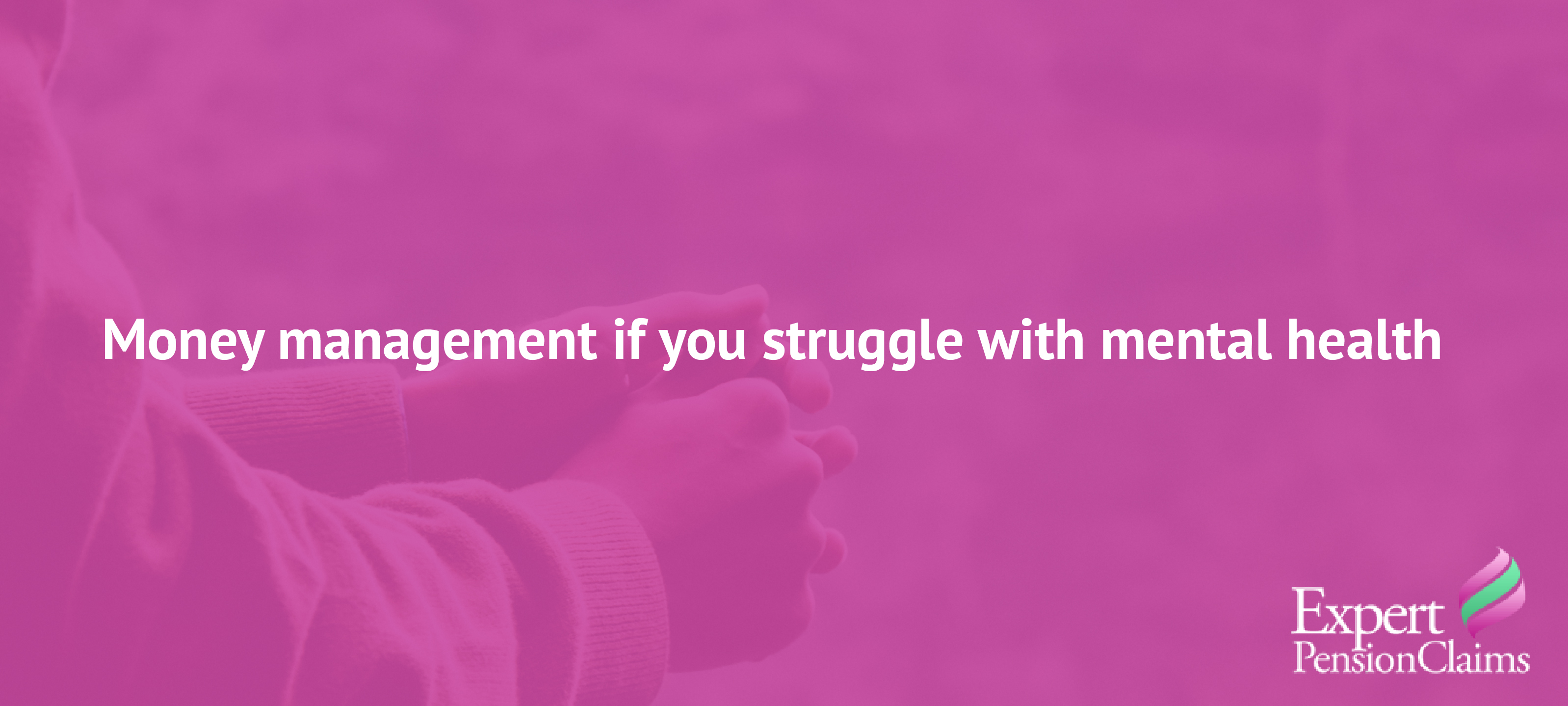What if it came to your retirement years and you found that your pension wasn’t what you thought it would be? For instance, you might have found that your pot hadn’t grown enough to provide you with a decent retirement income. As scary as this prospect may seem, sometimes it can just happen.
A poor retirement income could cause undue stress and take a toll on your mental well-being. With this being said, we thought to explore the connection between money and mental health.
It’s a connection backed up by statistics and the sheer number of people who report long-standing interrelations between the two. For example, a survey conducted by the Money & Mental Health Institute found that one in four British adults with a mental health problem has problem debt.
What’s more, 72% of the respondents from the same survey said that their mental health has definitely made their financial situation worse. Clearly, it’s an issue that needs tackling head on and it starts with information. Read our article for some tips on money management when you struggle with mental health:
First, how does mental health affect money worries?
Everyone has money worries at some point but not all of us struggle with mental health, so it’s not always clear just how mental health influences our money worries. Here are a few examples. If these are familiar to yourself or someone you know, then take note.
- People who report feelings of mania (an unpredictable state of mental illness associated with bipolar) or hypomania (a mild form of mania associated with milder forms of bipolar) often experience periods of impulsivity with money. Impulsive decisions are often made which leave you in debt. Here is a little more information on mania and hypomania.
- If you regularly feel the need to spend money on things to make yourself feel better, then this may be linked to mental health and related issues like self-esteem or confidence.
- If you feel a strong anxiety about and aversion to talking on the phone, visiting the bank or opening envelopes from your bank, then this may be linked to mental health issues.
- A less common one, but relevant all the same: if you feel increasingly anxious about spending money even if you have enough, then this can lead to similarly unhealthy patterns of behaviour between money and mental health.
- If you struggle with money and cannot afford essentials like heating, food, housing or medication, then this will inevitably affect your mental health.
What can I do to better manage my money and mental health?
Recognise your patterns and behaviour
Whether you experience anxiety with money management or you have a hard time managing finances with depression, the first thing you need to do is recognise the behaviour and call it out. It’s important that you recognise the patterns so that you can stay one step ahead.
Can you put a finger on what it is about money that makes you feel worse? Is it fearing confrontation should someone at your bank get something wrong? Perhaps previous spending has elevated your anxiety so much that you cannot open envelopes?
Remember that the mere understanding of your behaviour puts you back in control. If you’re aware of your patterns, it’s you in the driving seat and not your condition.
Talk to someone (it helps!)
Separately, there are elements of shame around money and mental health. Together, the feelings of shame are amplified. Debt and shame go hand-in-hand, and both are exacerbated by an out of control mental illness. Here are some trusted people you may be able to talk to:
- A friend/family member.
- Student services. If you’re currently a student, you may find it helpful to speak to a tutor or someone in charge of mental health services at your university.
- Seek out a support worker or mental health professional.
- You can call the Samaritans for free on 116 123.
Even the smallest bit of organisation helps
Making small efforts to get organised really does help! It puts you back in control, helping you to keep track of your spending. Here are a few more organisational tips:
- At the same time every week, put some time aside to look at your money. Review your ingoings and outgoings so that you know what’s going on. Things won’t pile up this way.
- Have all important documents on-hand in a place you know is safe, so that you can easily find them. Having your paperwork in order is important, because the uncertainty that comes with having random paperwork everywhere is a common trigger for those with mental health issues.
- Create a budget. First of all, know each and every one of your outgoings and ingoings. Then, create a weekly budget and make it realistic.
Seek mental health financial assistance
There is a long-existing stigma around money, making those with mental health issues susceptible to its influence. From finding the best utility prices to actively helping you through your monthly bills, there are plenty of mental health professionals out there. Mind’s Useful Contacts page is the best place to start.
Get an understanding of the terminology, etc
Many of us would probably admit to a less than ideal understanding of how some financial terminology works. For example, if you don’t really understand what APR interest rates are or how overdraft fees work, this misunderstanding could cost you. At the very least it will fuel any fears or anxieties you may have about money.
Get to grips with the terms, and most importantly – get to grips with your bank account. Does it have an overdraft? What are the charges? If you’re in debt with a high-interest rate credit card, are you eligible to transfer the balance to one with 0% interest?
Remember, ignorance isn’t bliss. Facing up to your fears and tackling finances head-on is so much healthier.
Don’t let your mental illness run your finances
There are numerous ways that you can take charge of your financial situation, and your future. Money and poor mental health is a historically toxic combination, but it doesn’t have to be unhealthy for you.
What we’ve also seen is the historic susceptibility of those with mental health problems to financial scams. Like financial scammers, rogue financial advisors can (knowingly or otherwise) take advantage of conditions like anxiety. With pressure tactics and the like, it can be hard to say no.
At Expert Pension Claims, it is our goal to ensure that you have enough money in your pension pot for your retirement years. If you have any concerns about your pension scheme or you think you have been mis-sold a pension, contact us here. Alternatively, you can call 0161 968 0768 and a member of our specialist team will be happy to help.
Expert Pension Claims is a claims management company. We do charge a fee for our services, but this is only if your claim is successful. We do not charge a cancellation fee. For more information, visit our fees page.














